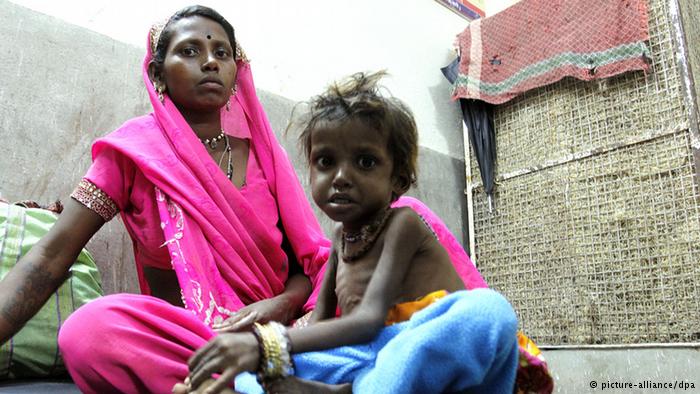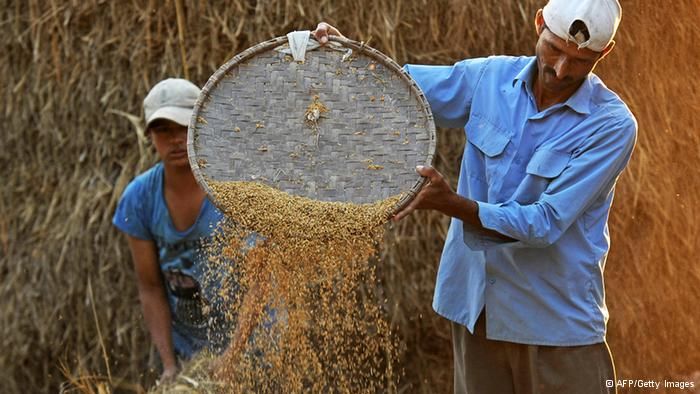India’s government has launched a program to provide subsidized food to two-thirds of the population. However, critics believe the plan undermines the country’s small farmers and is a political move to win votes.
It is arguably one the largest food aid programs in the world. India’s ruling party, the Indian National Congress called it a „game changer in terms of poverty eradication.“ The National Food Security Bill approved by the Indian government on Wednesday, July 3, is the latest attempt to tackle the problem of endemic hunger in a country where nearly half of its children under the age of five are chronically malnourished, according to the government’s own estimates.
Despite the remarkable growth rates of the past two decades, India ranked 65 out of 79 nations on last year’s Global Hunger Index issued by the International Food Policy Research Institute. Furthermore, the UN’s Food and Agriculture Organization reported that an estimated 217 million Indians were undernourished in 2012.
Food for 800 million people
The bill, which was passed by ordinance and still requires ratification by both houses of parliament, is set to provide subsidized food to nearly 67 percent of India’s population. There are already many food guarantee schemes for the poorest of the poor. However, the new bill is expected to vastly increase the target group.

According to the government is almost every second child in India chronically malnourished.
© picture-alliance/dpa
About 75 percent of the rural population and 50 percent of the urban population is supposed to benefit from the measure. According to the bill, around 800 million people will thus have access to subsidized food, whereby the amount of subsidies received would vary from household to household. So-called „priority households“ would receive the maximum monthly entitlement of one kilo of rice at three rupees (five US cents), wheat at two rupees and millet at one rupee.
The bill already has the backing of some prominent citizens such as Nobel Prize-winning economist Armatya Sen. „The pushing through of the food security bill right now is a very important step to take,“ Sen told German public broadcaster ARD.

